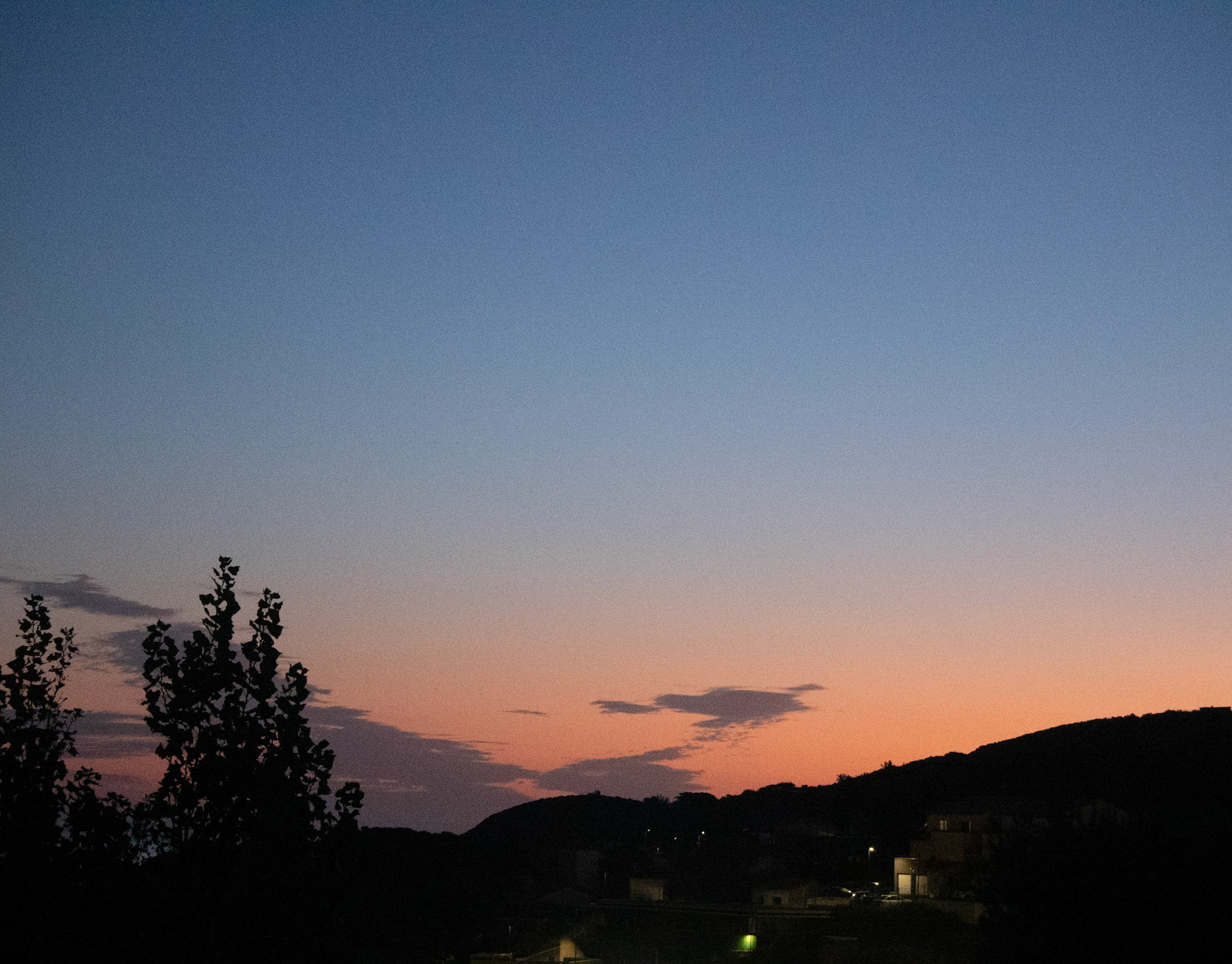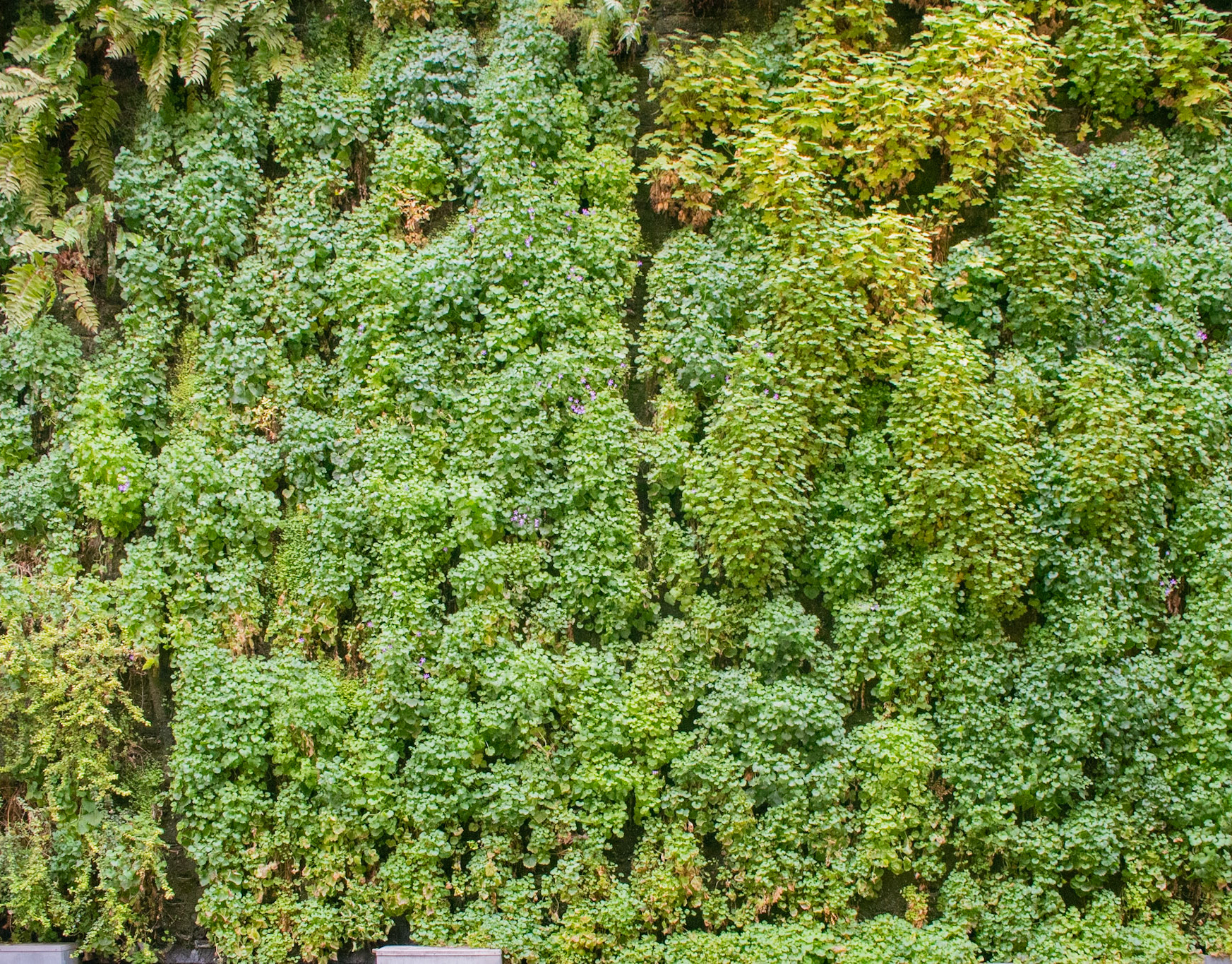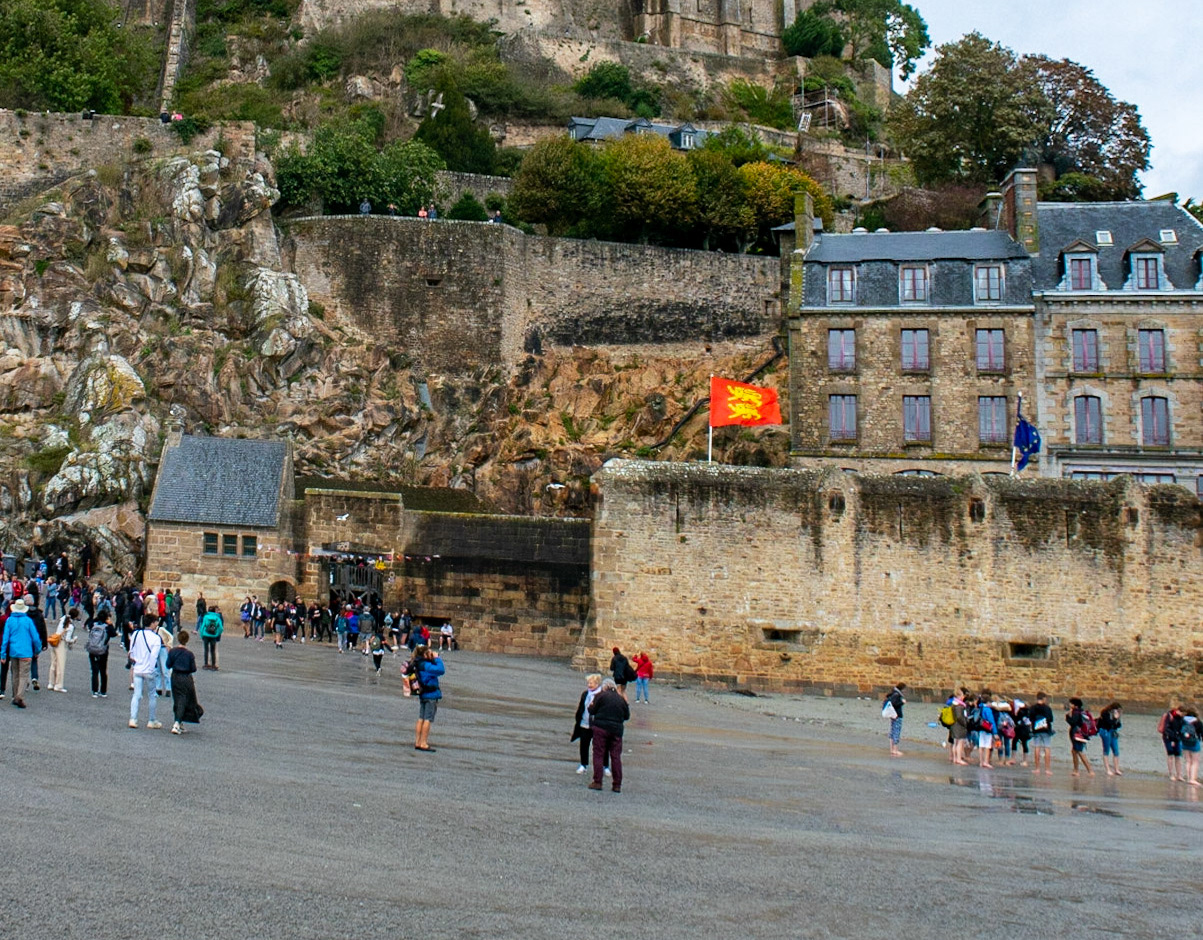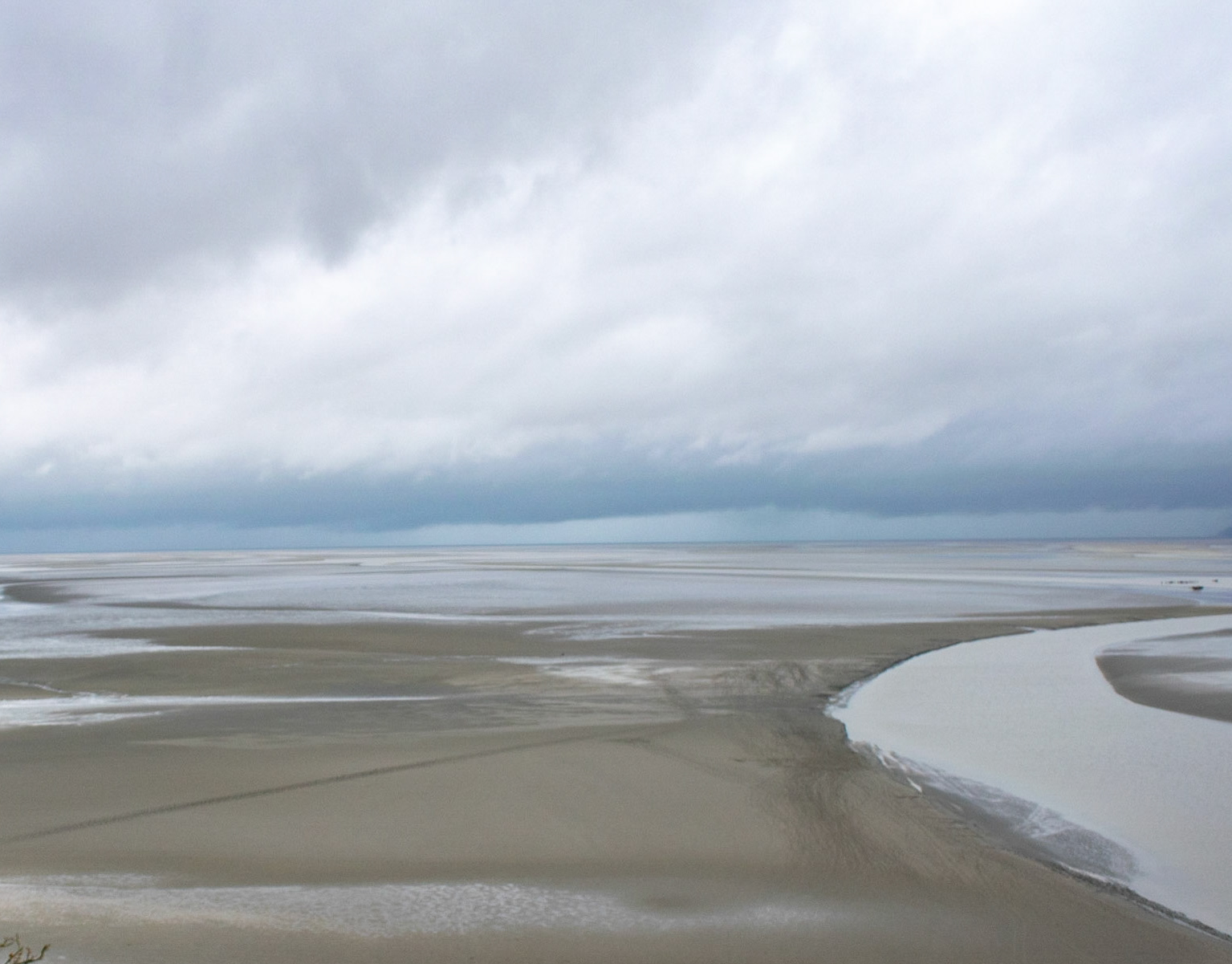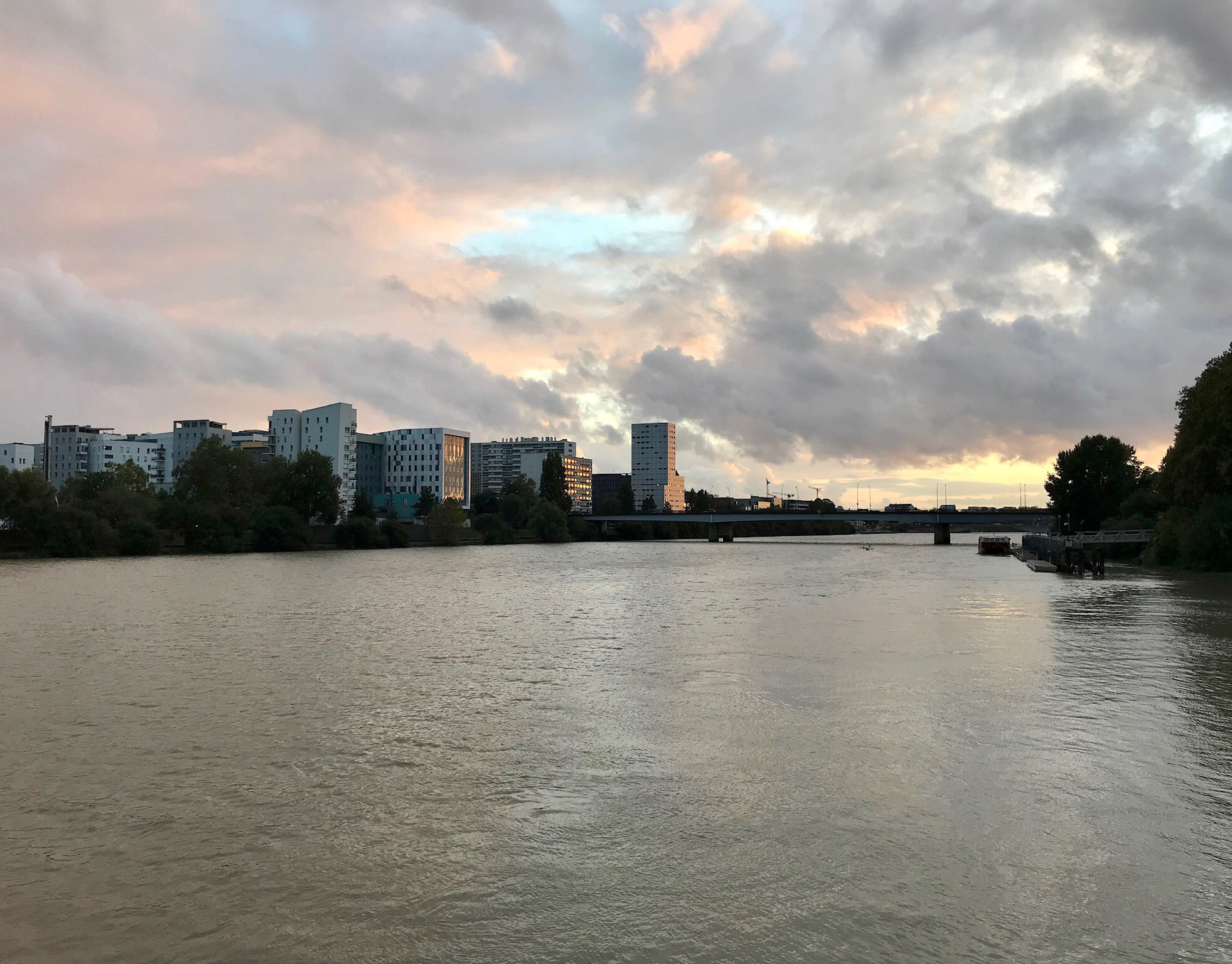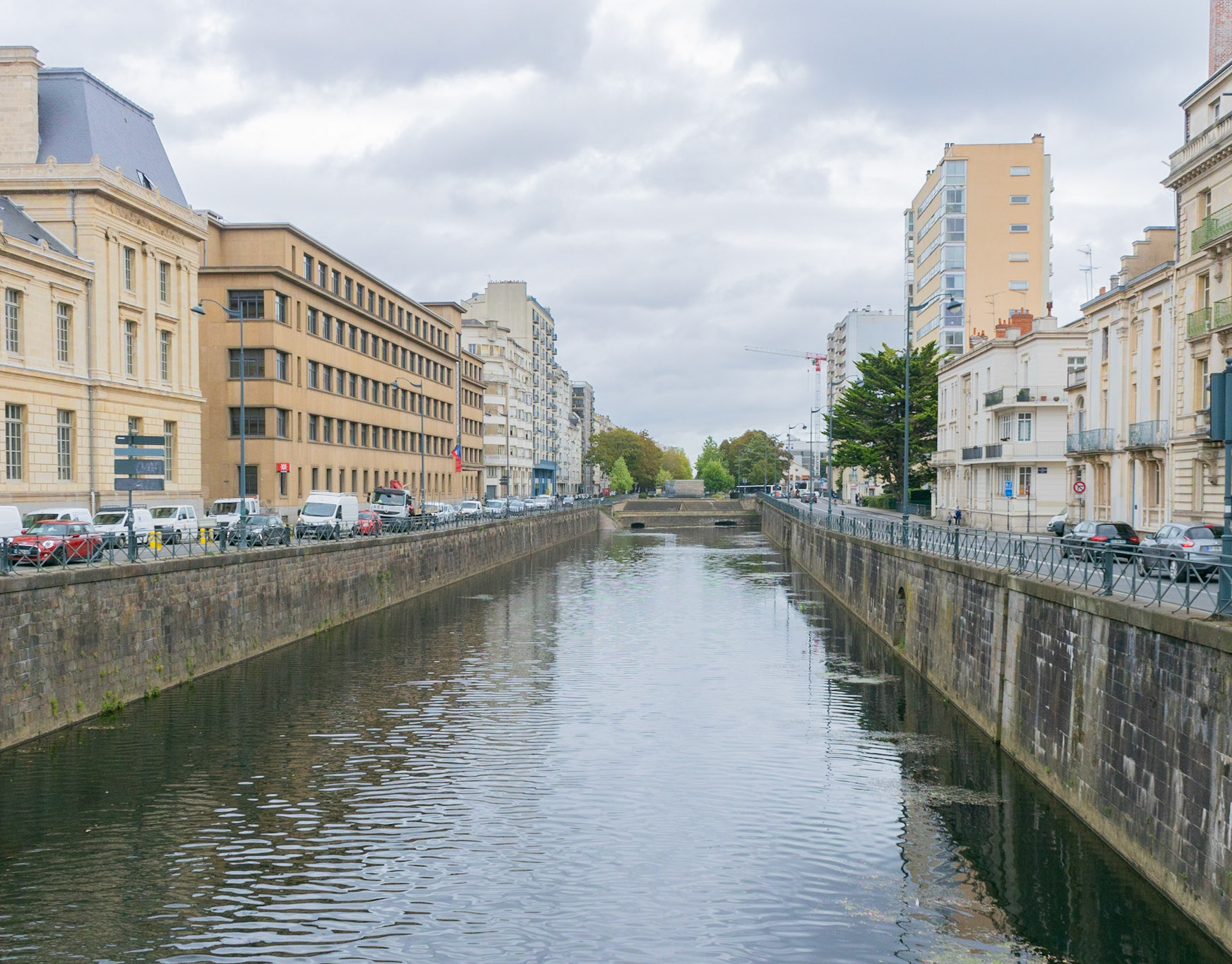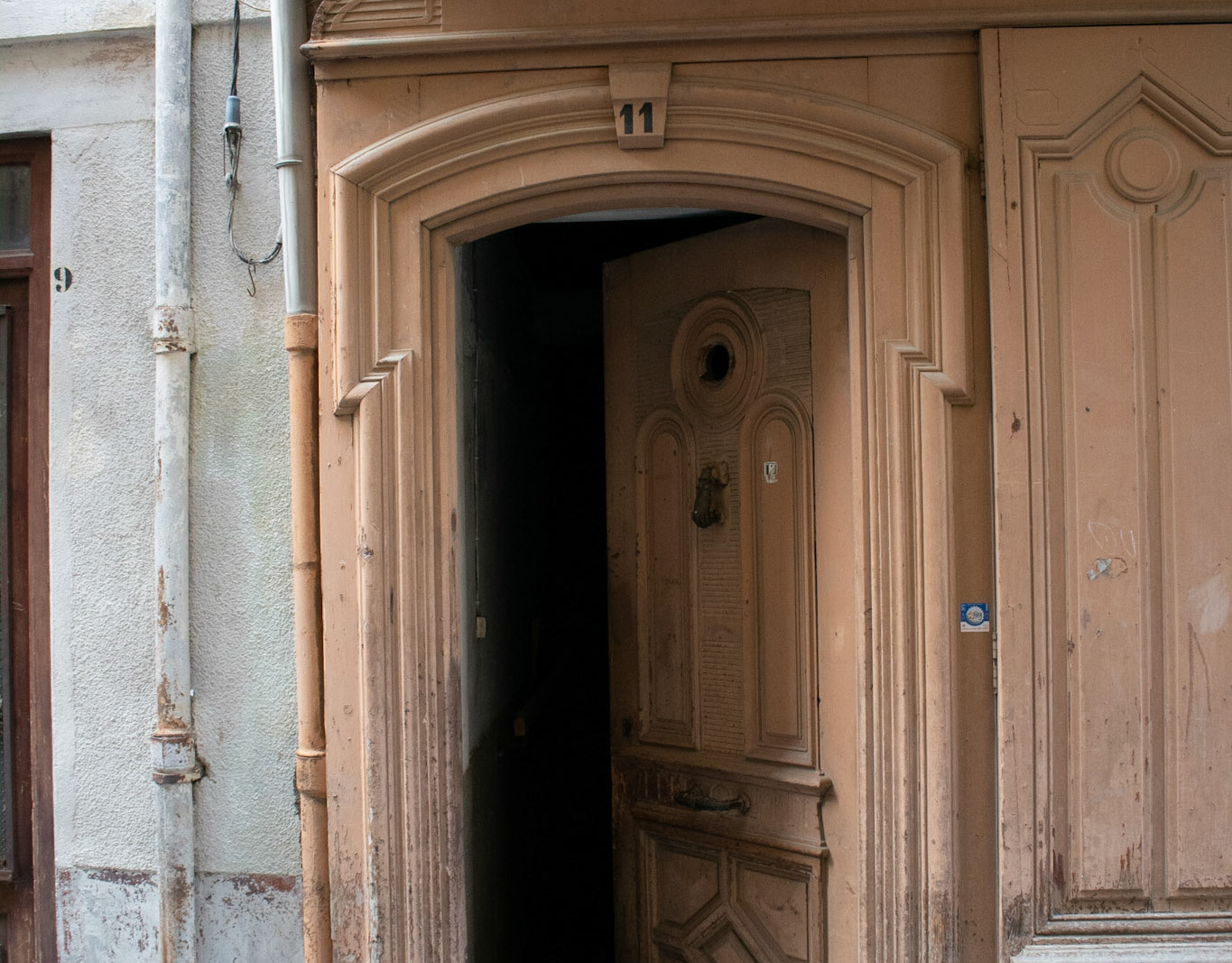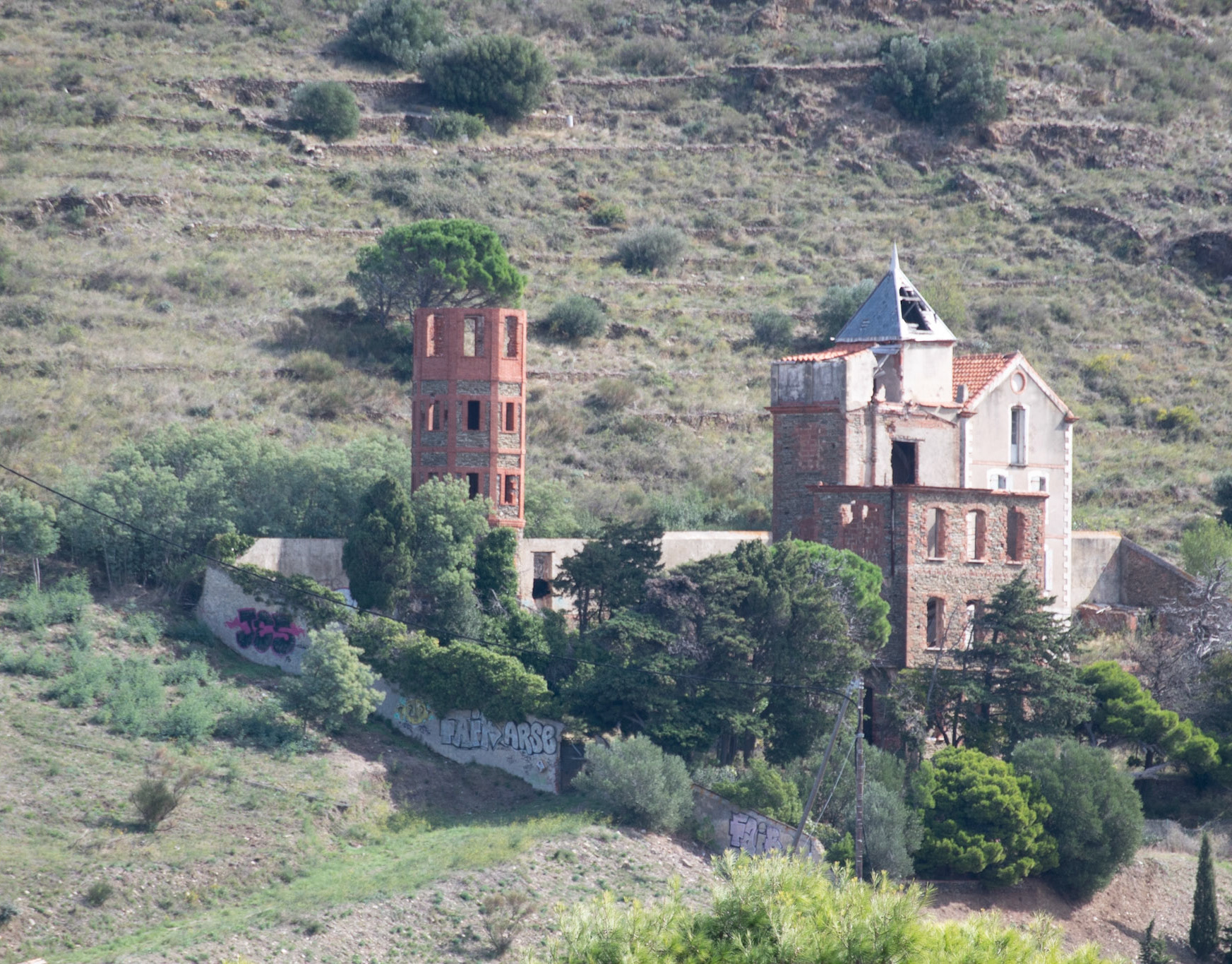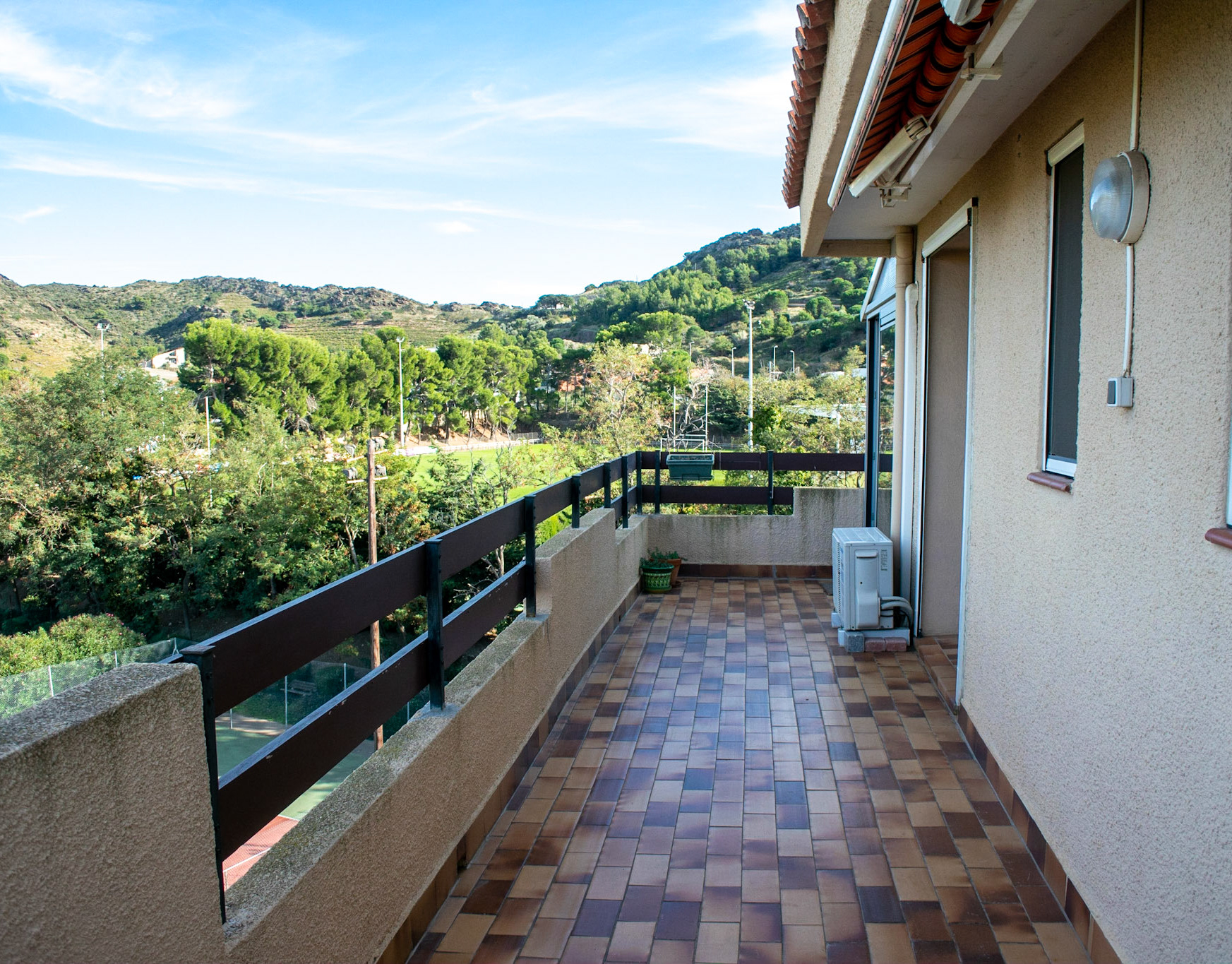Port-Vendres has something going for it that the other villages and towns of the Cote Vermeille to not: 3000 years of history as a key sheltered, deepwater seaport on the Med. Next to it toward Perpignan is the fantasy village of Collioure, which was a royal court as well as a courtly fort for the Aragons. Today, it's the fantasy that seduces tourists, and there's no doubt of the charm of its meandering streets and alleys, but it's lost its touch with real Catalan daily life in favor of tourism. As a consequence, it is Port-Vendres that supplies its daily catch to the others and has a large number of good restaurants to flaunt the best fish and other seafoods. While tourism is important, in the other seasons its working class soul shows through.
We loved watching from our veranda as the fishing trawlers crossed through the harbor's mouth while sailboats flickered past or played on the horizon. Once each week, a new freighter was brought into the harbor by the harbor pilot who'd been taken out by a small tug, and each freighter was then nestled along the long industrial wharf and its warehouses that our apartment overlooked. The shipboard cranes, run by the local longshoremen, swung into action and pulled cargo in small packets from the holds after clearing the top deck of its load of truck-size containers. As the containers came off, semis that had been waiting on the other side of port were loaded and headed for the A-9 and on to the rest of France with loads of pineapples and bananas from Africa.
When ships left with a new cargo, it was milled lumber. That had surprised us, but France exports lumber and much of the Med's coastline is treeless. There are not only deserts to the sout in Africah, but this part of France and Spain are coastal deserts, mountainous and sere. It's not a soft land, but it's awesome.
Old Catalonia is alive and well, evident on signage and in the names of countless restaurants and businesses, street names and monuments. The bread is different here. You can get a Paris baguette every day, the cheap basic loaf that is stale by the end of lunch, but you can get serious artisan breads and pastries that are fresh for two days and sunnily stunning in flavor and texture. They cost $1.50 rather that $0.46, and it's better than the best $5 loaf in Portland. And $5 for a loaf of bread is wrong.
I mention bread because we were immediately told by our apartment manager that which boulangerie was the best of four to six scattered round the small port. We had that confirmed when we ran out of bread and they were closed. It felt like a bread emergency. Les Pains du Qais—make a note somewhere and don't lose it. This is worth the trip.
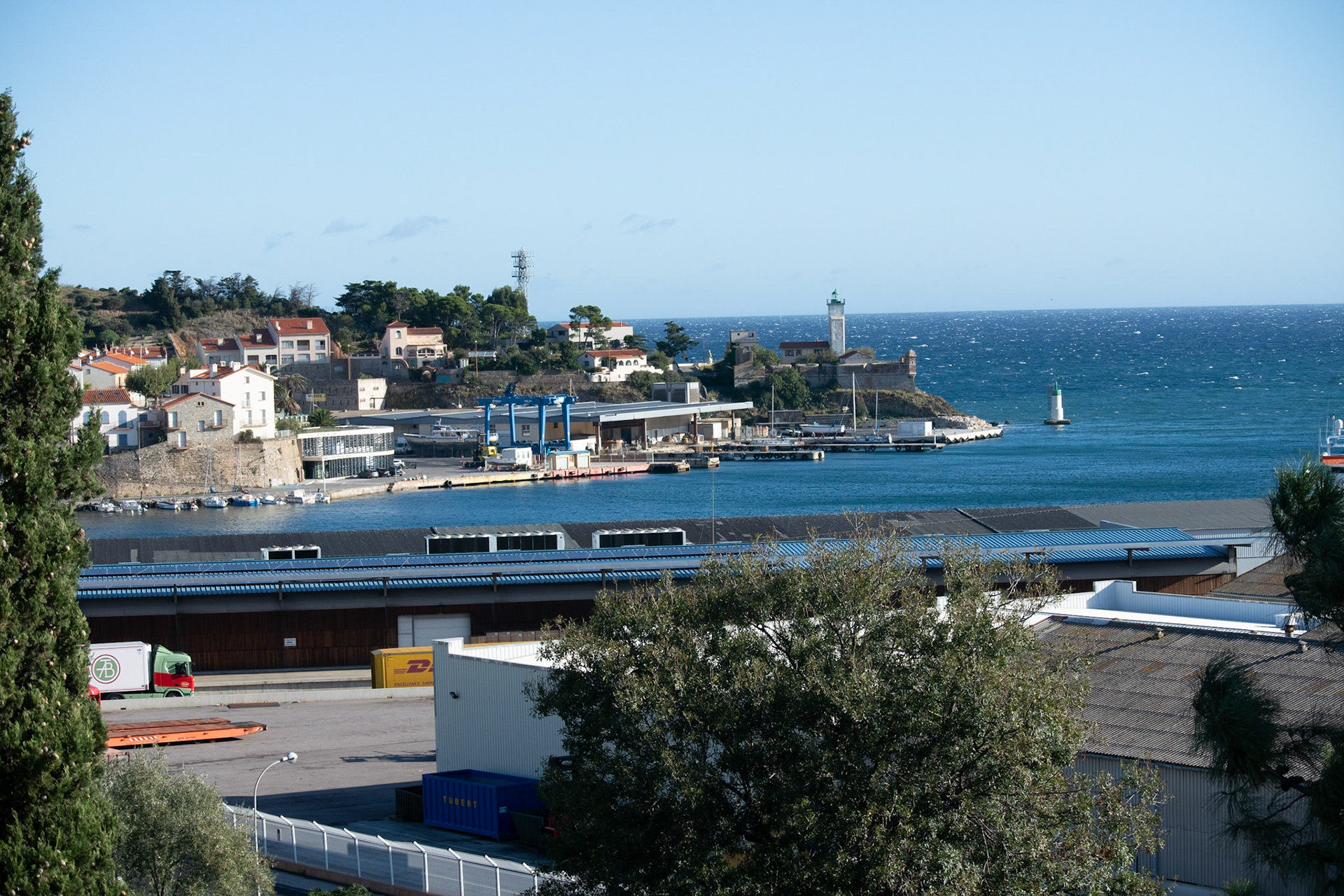
From our kitchen veranda looking NE out of the harbor.
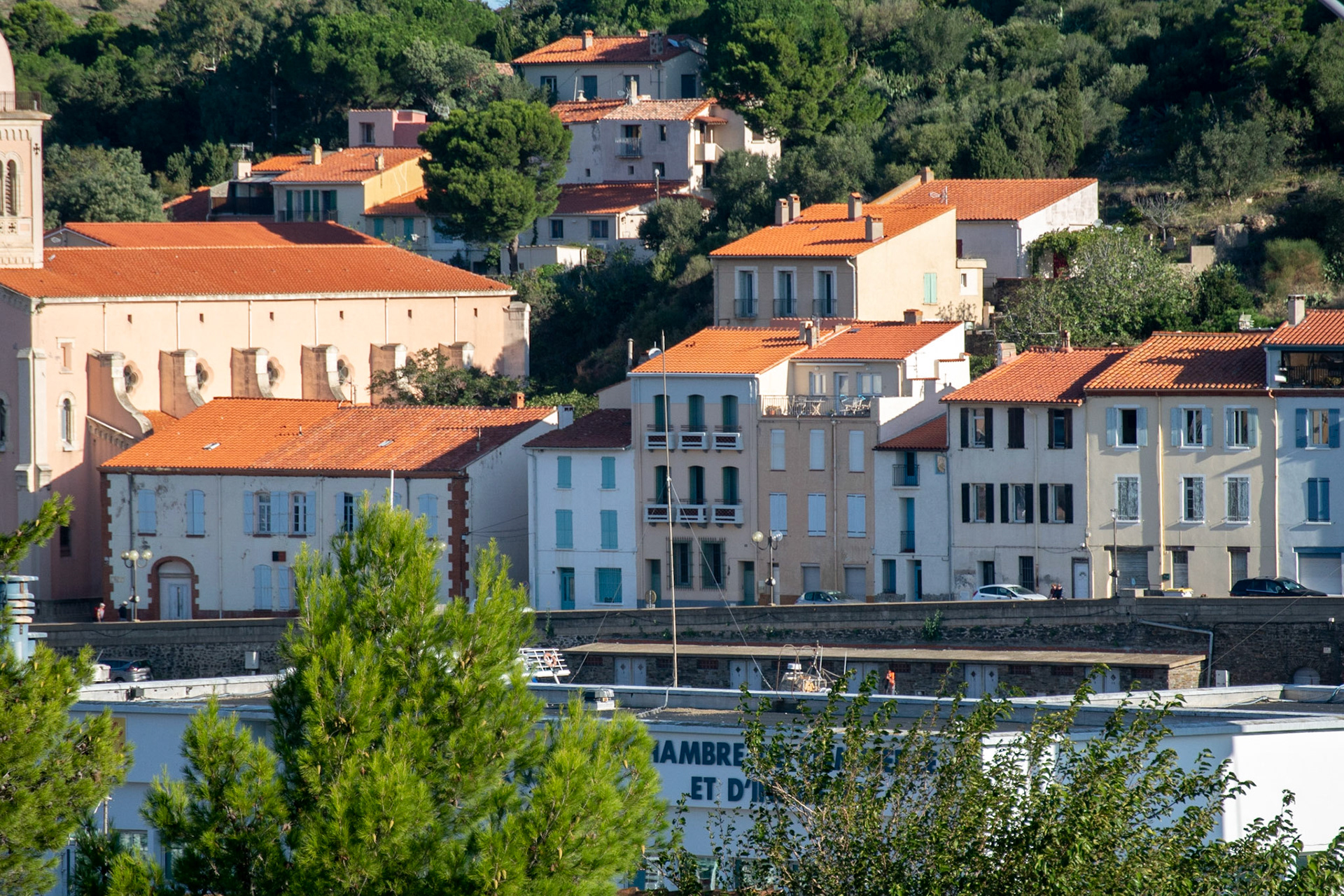
Inside the Port on the north, next to the church and oblisque.
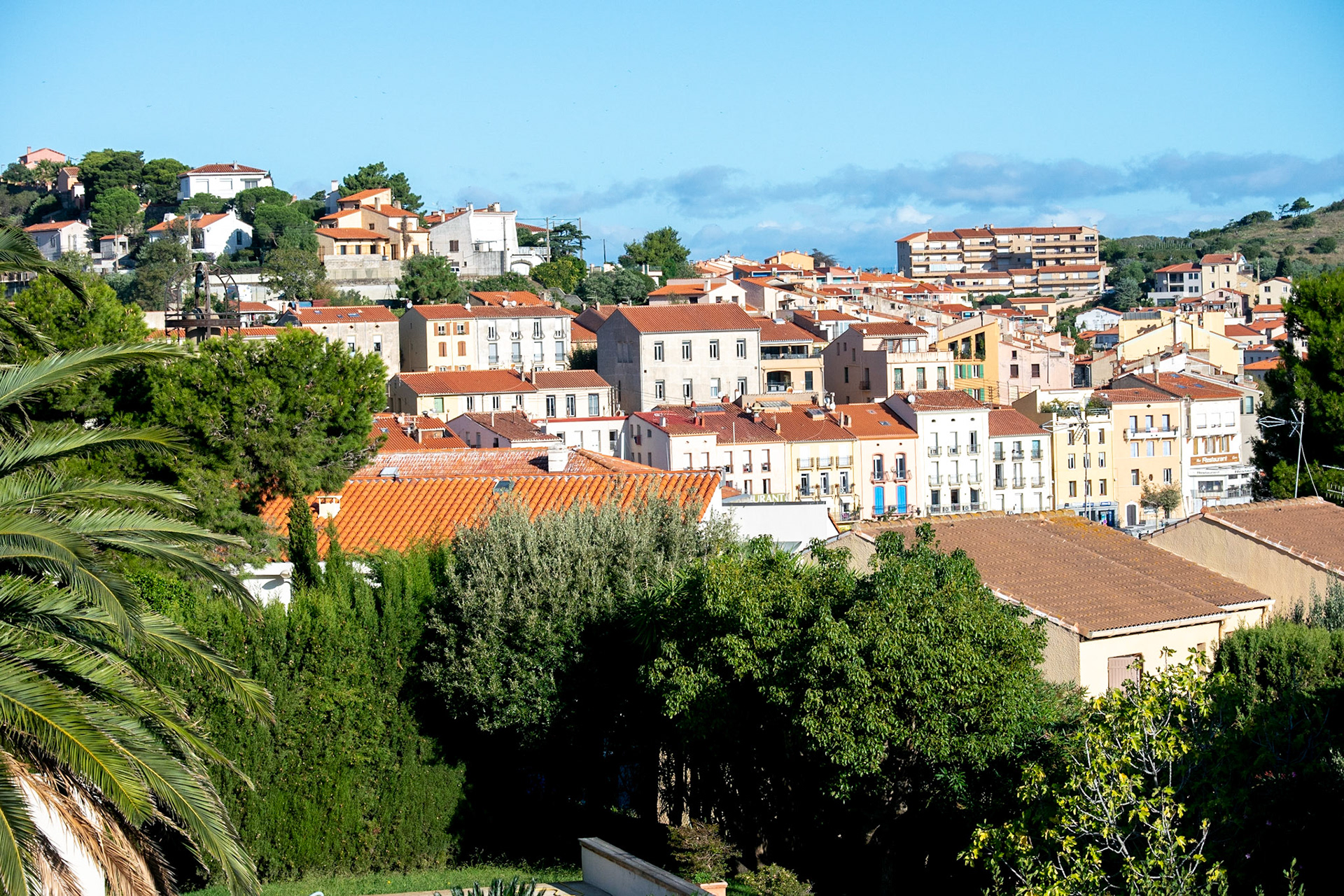
Looking toward the inside of the harbor and the downtown quais.
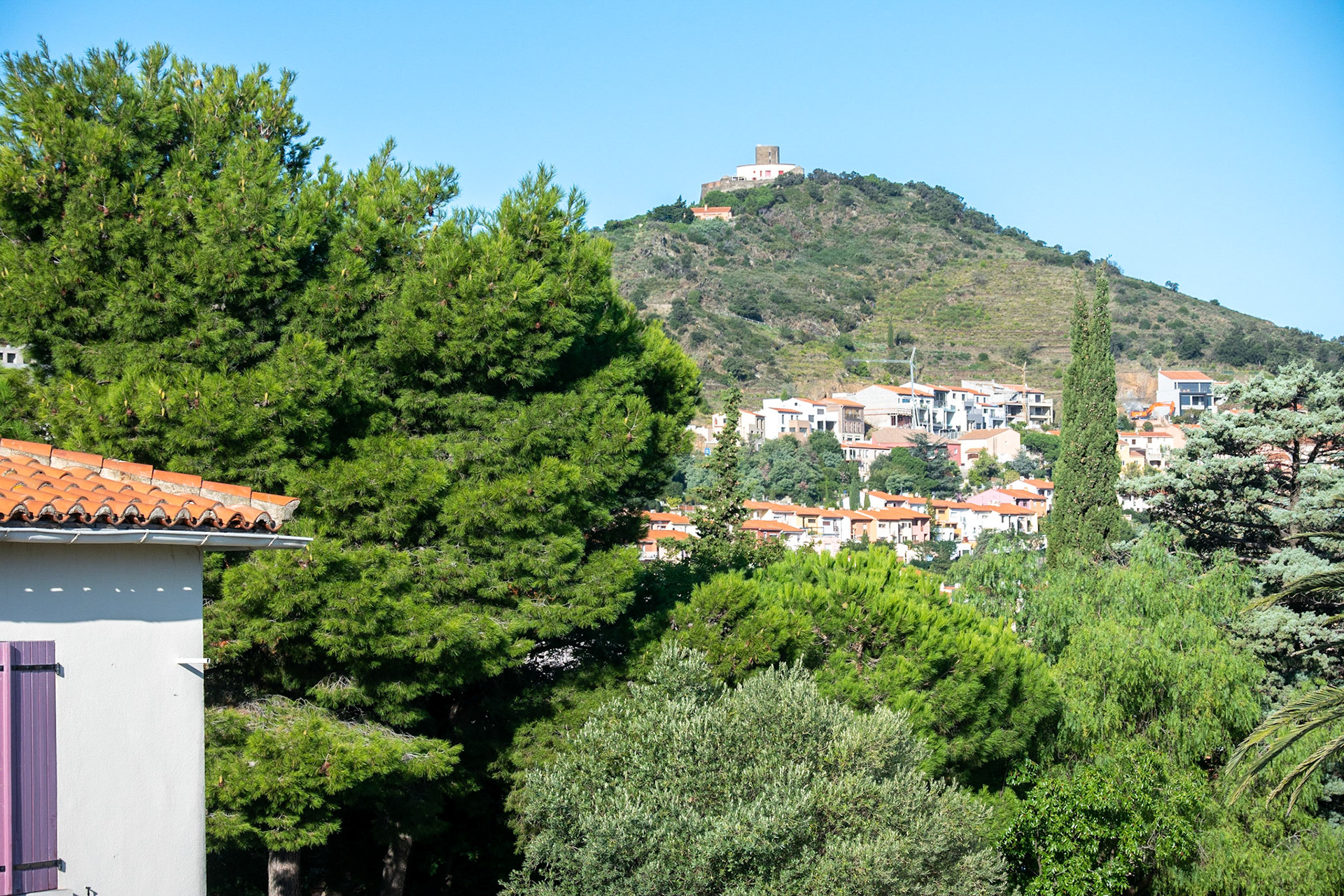
Every hilltop and promontory has the ruins of a fort or watch tower.
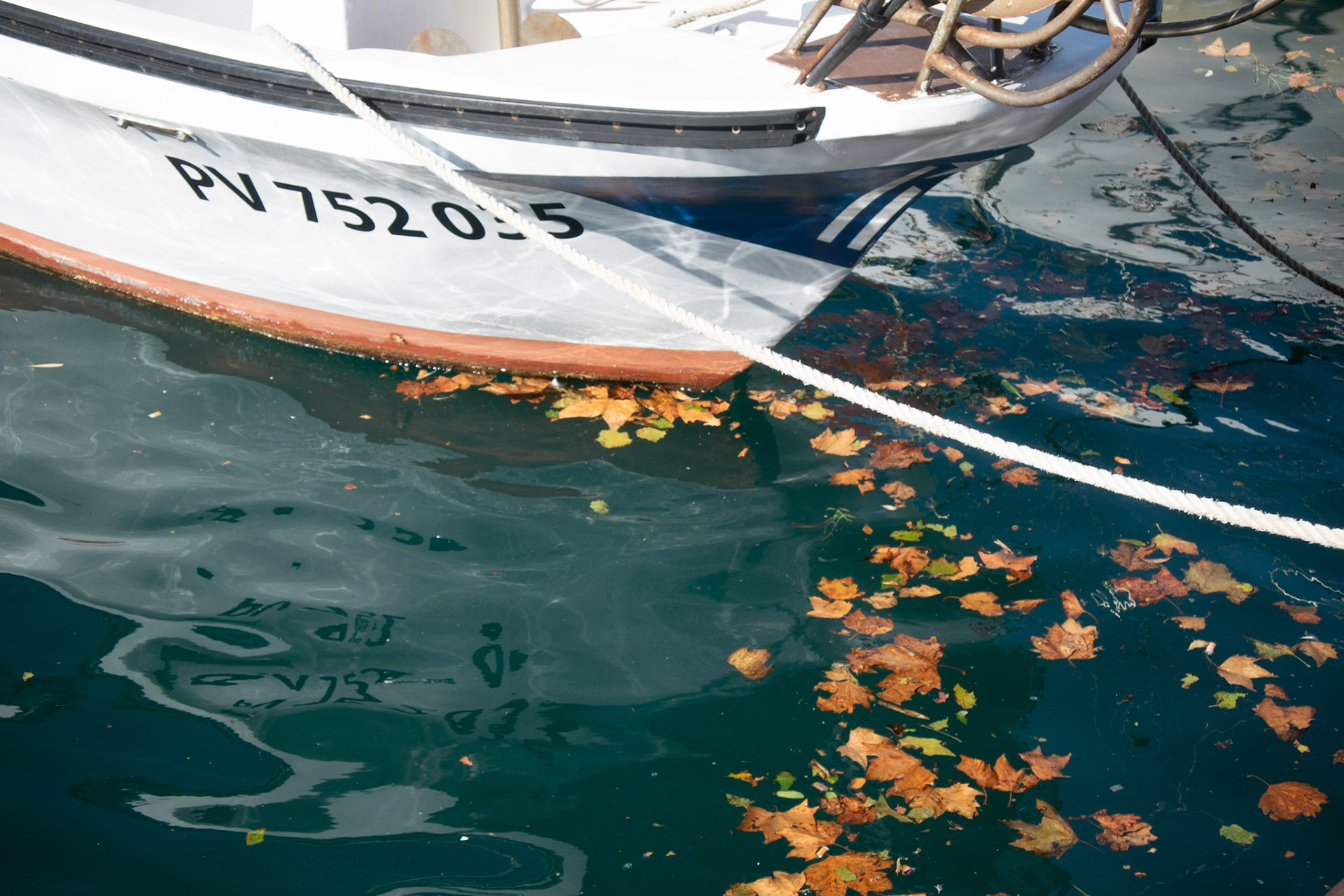
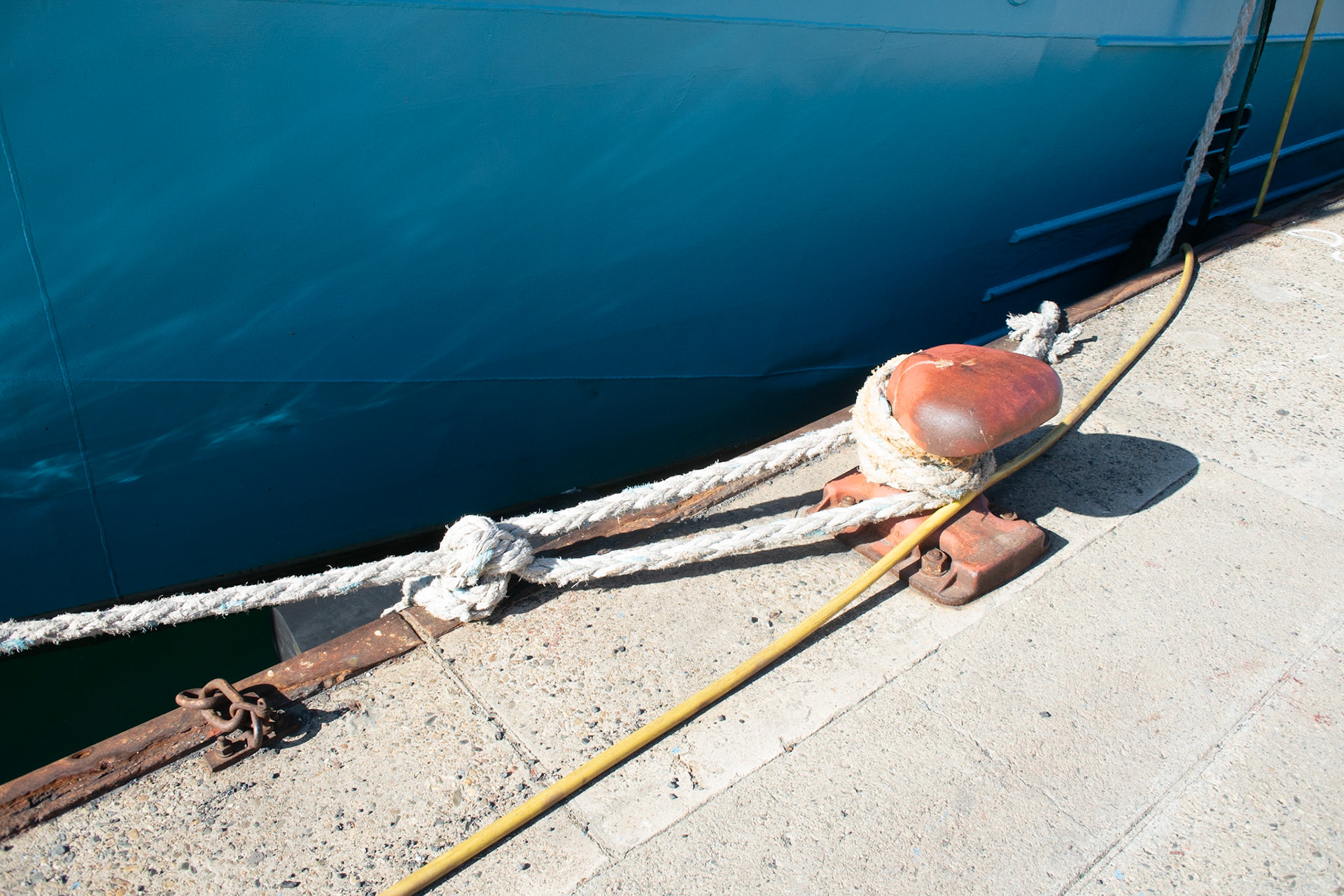
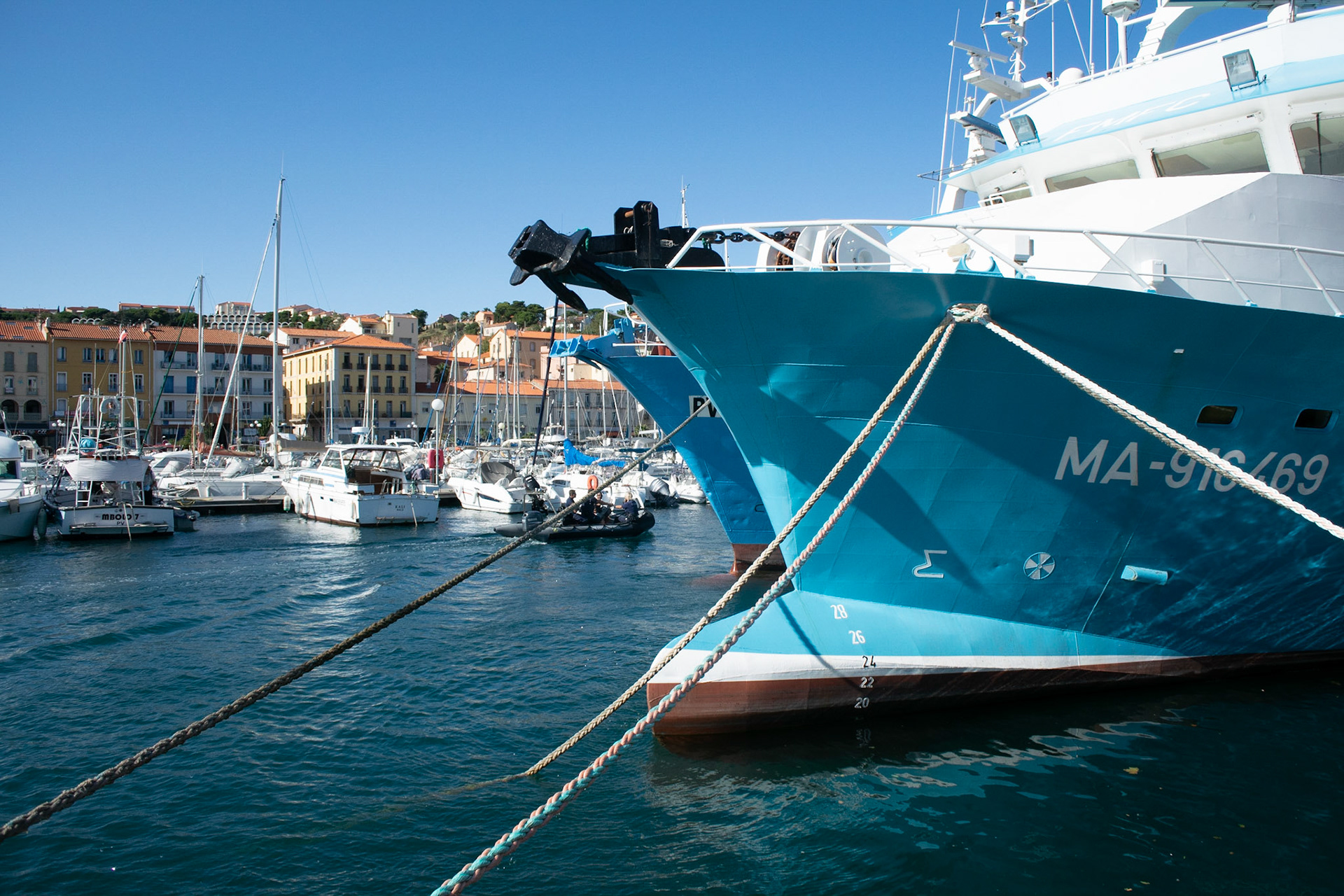
Lots of small boats, both pleasure and work, but also these miners of the sea.
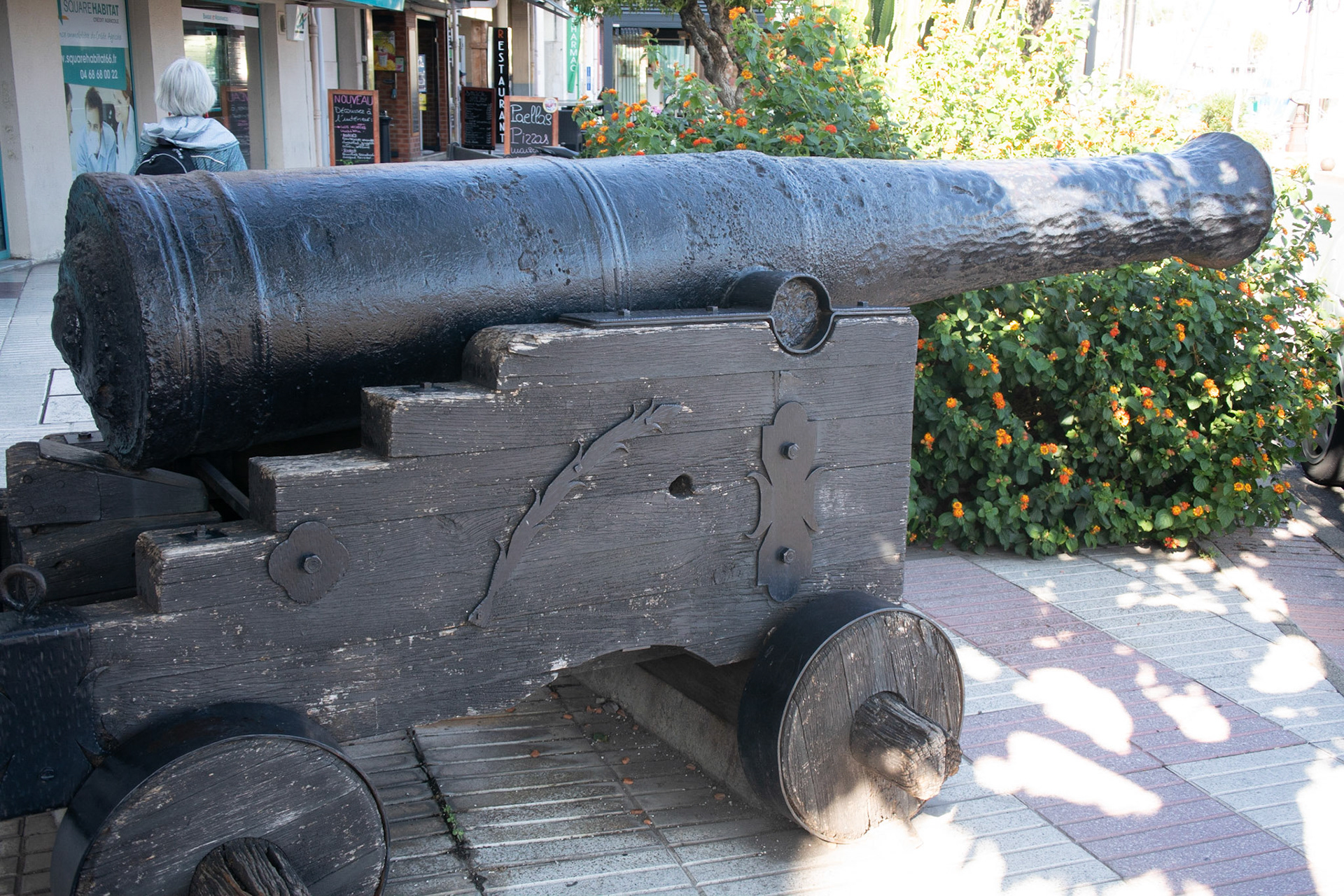
Below the oblisque and monument and Saturday market.
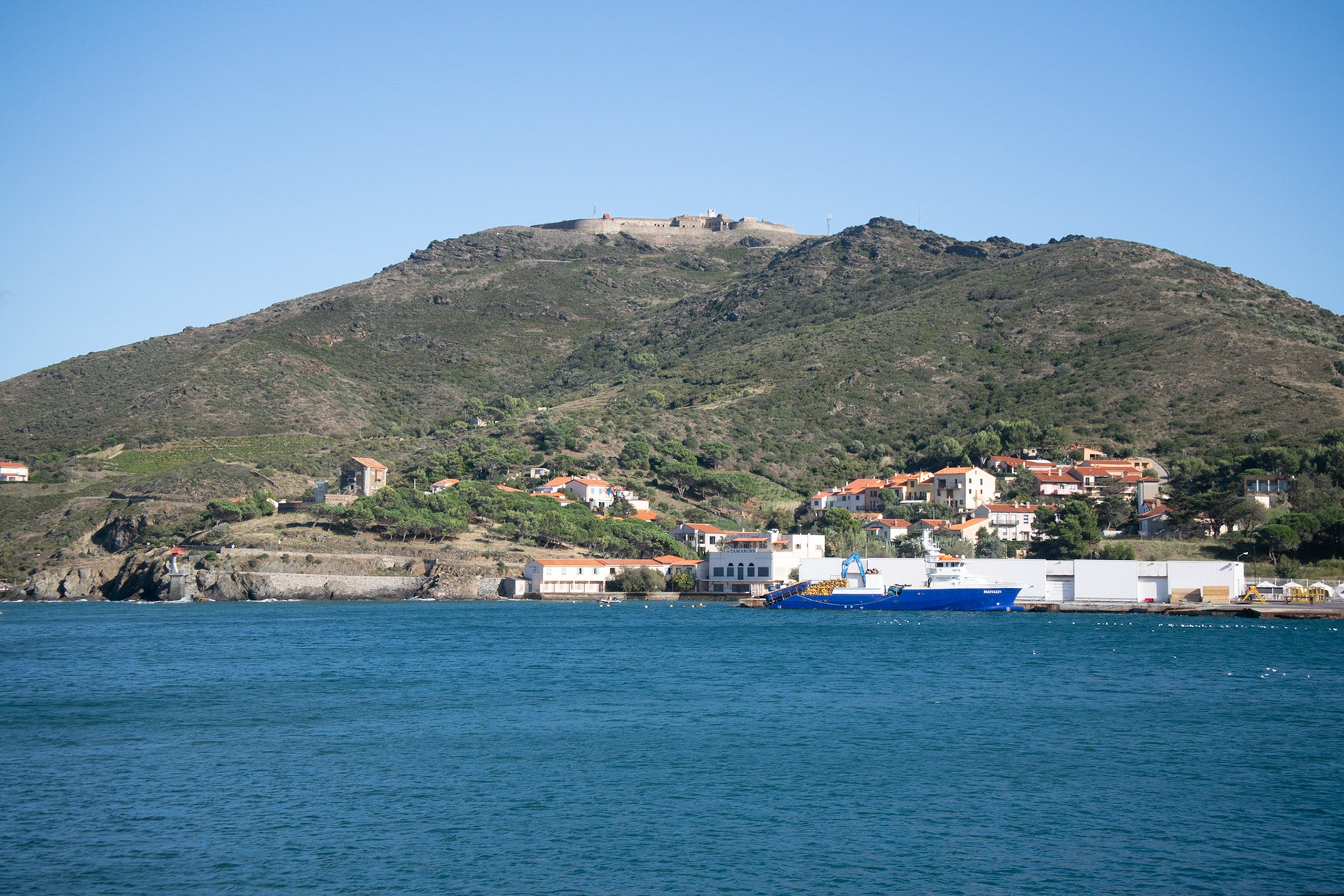
Looking from the north side of the harbor toward our place.
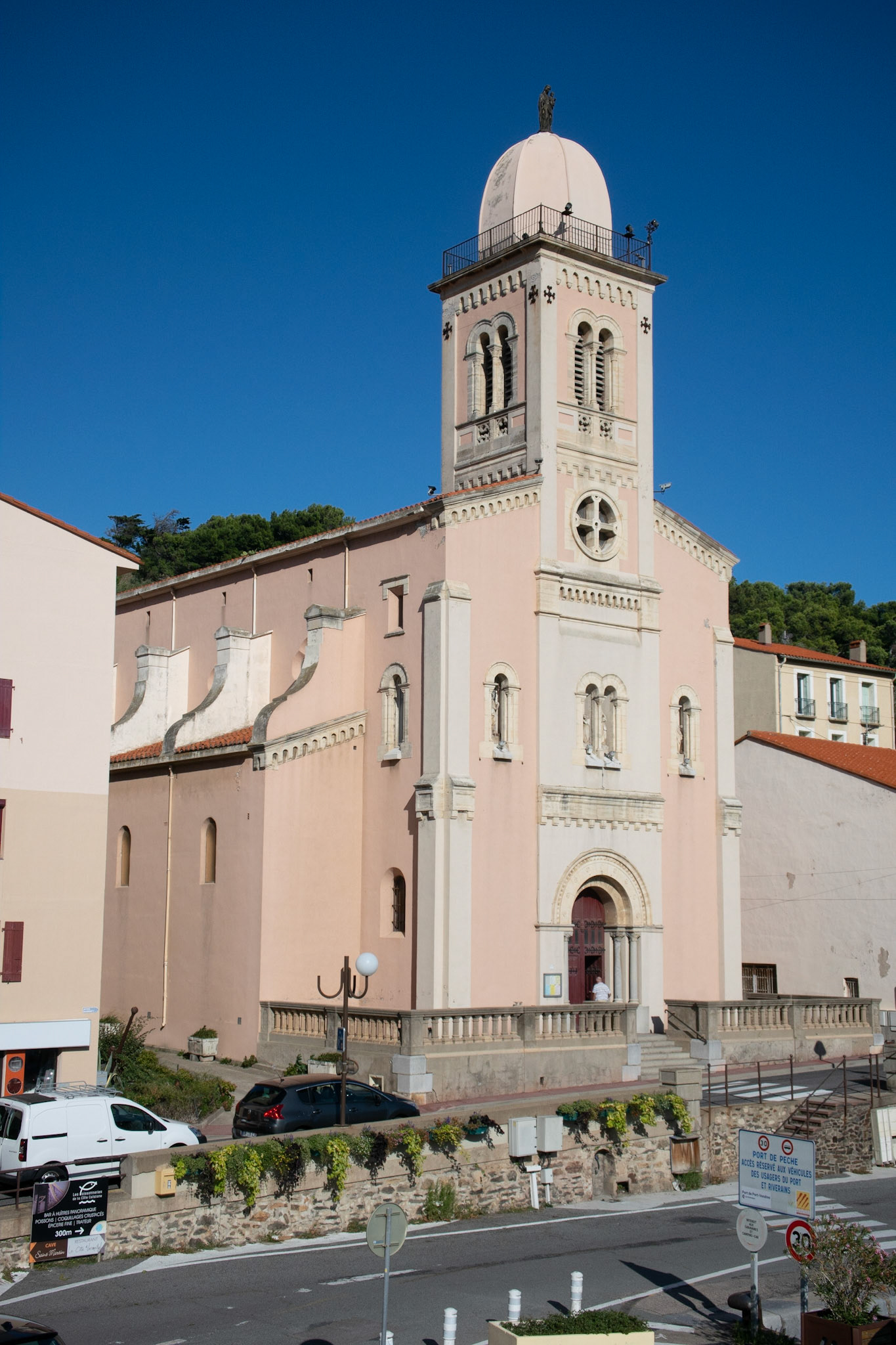
The sailors' church.
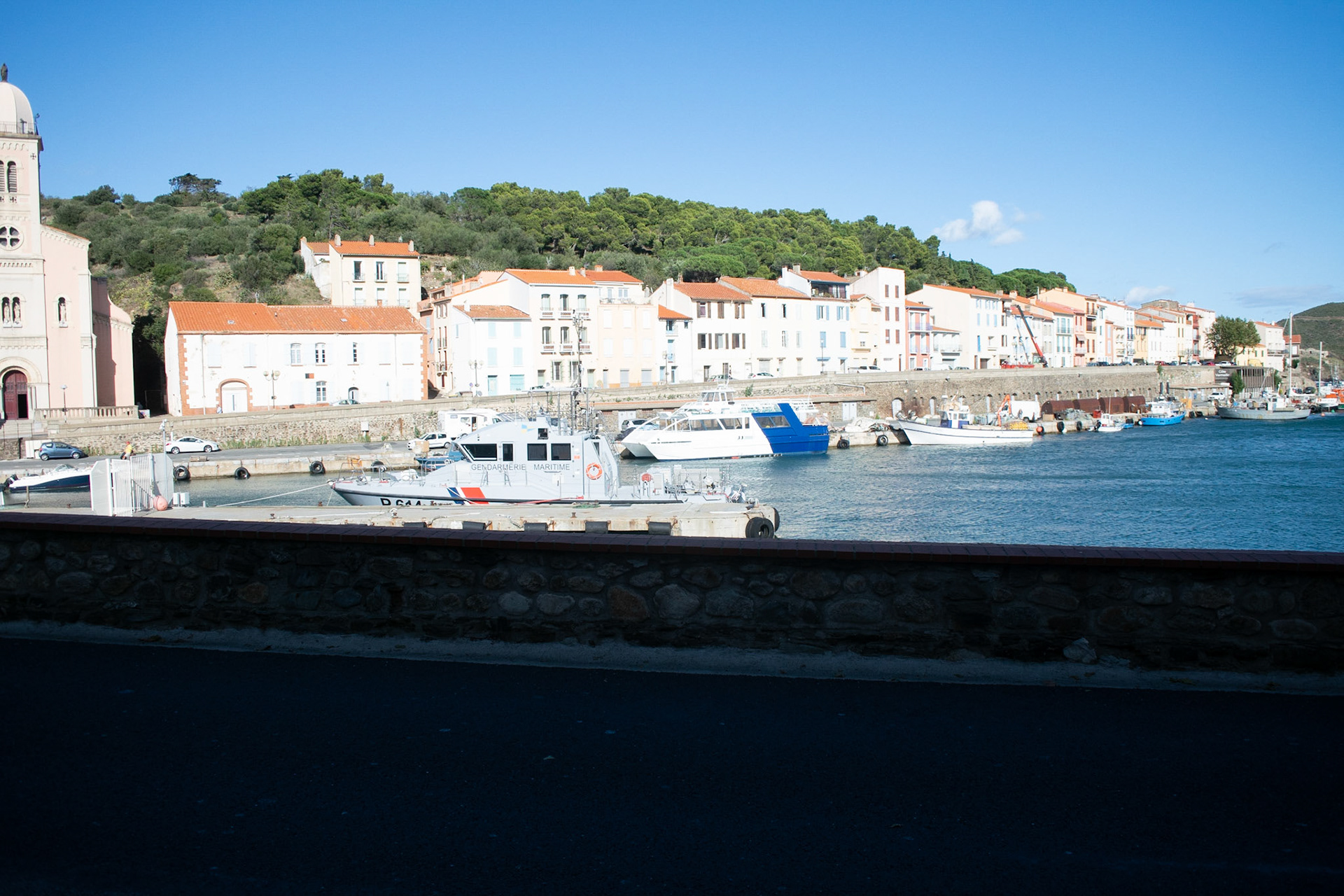
On a morning walk. This side has more of the remaining old buildings.
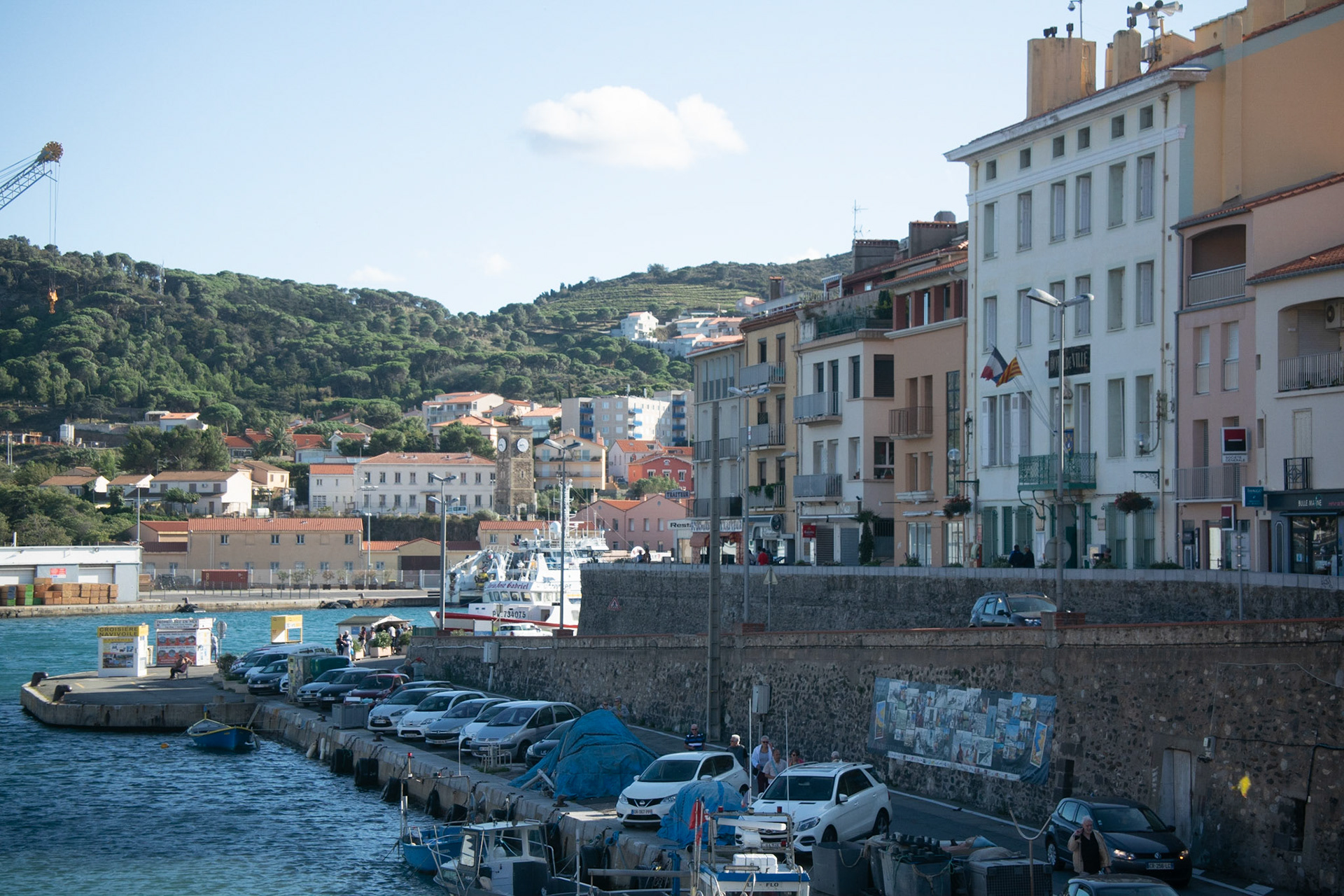
Same street as previous, but looking back in late afternoon.
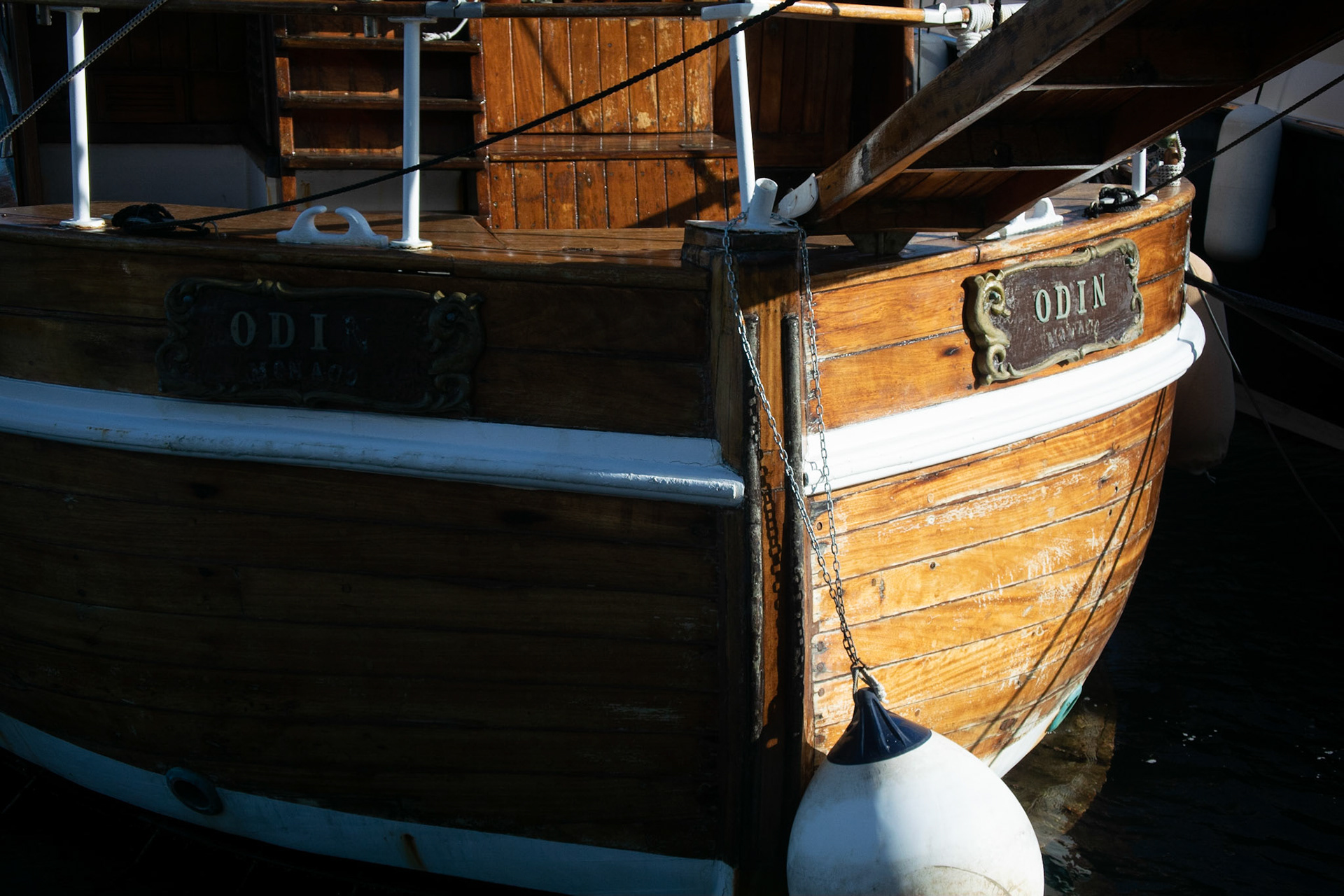
Someone clearly lives aboard this beauty.
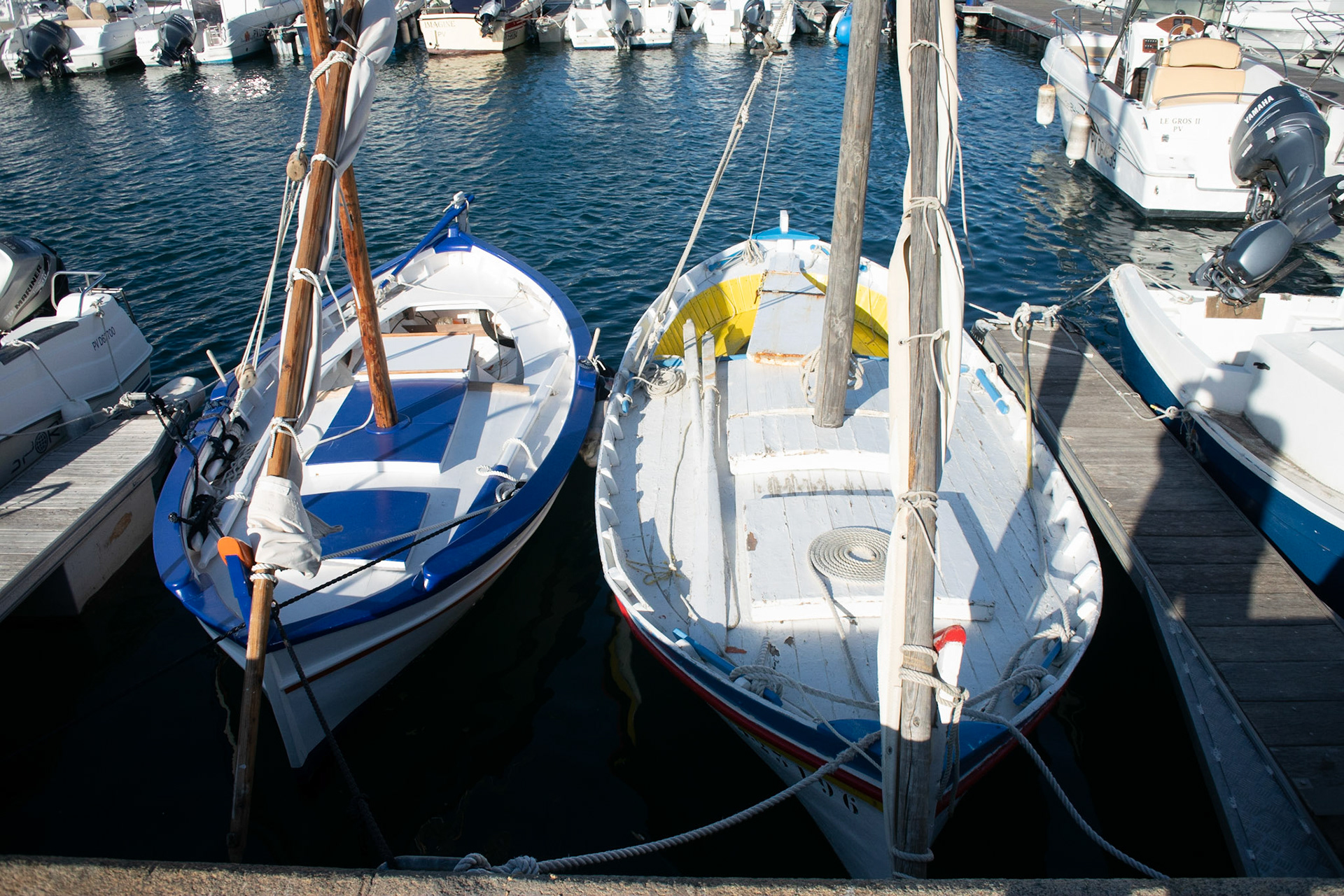
These are local classics, although both have small invoard motors.
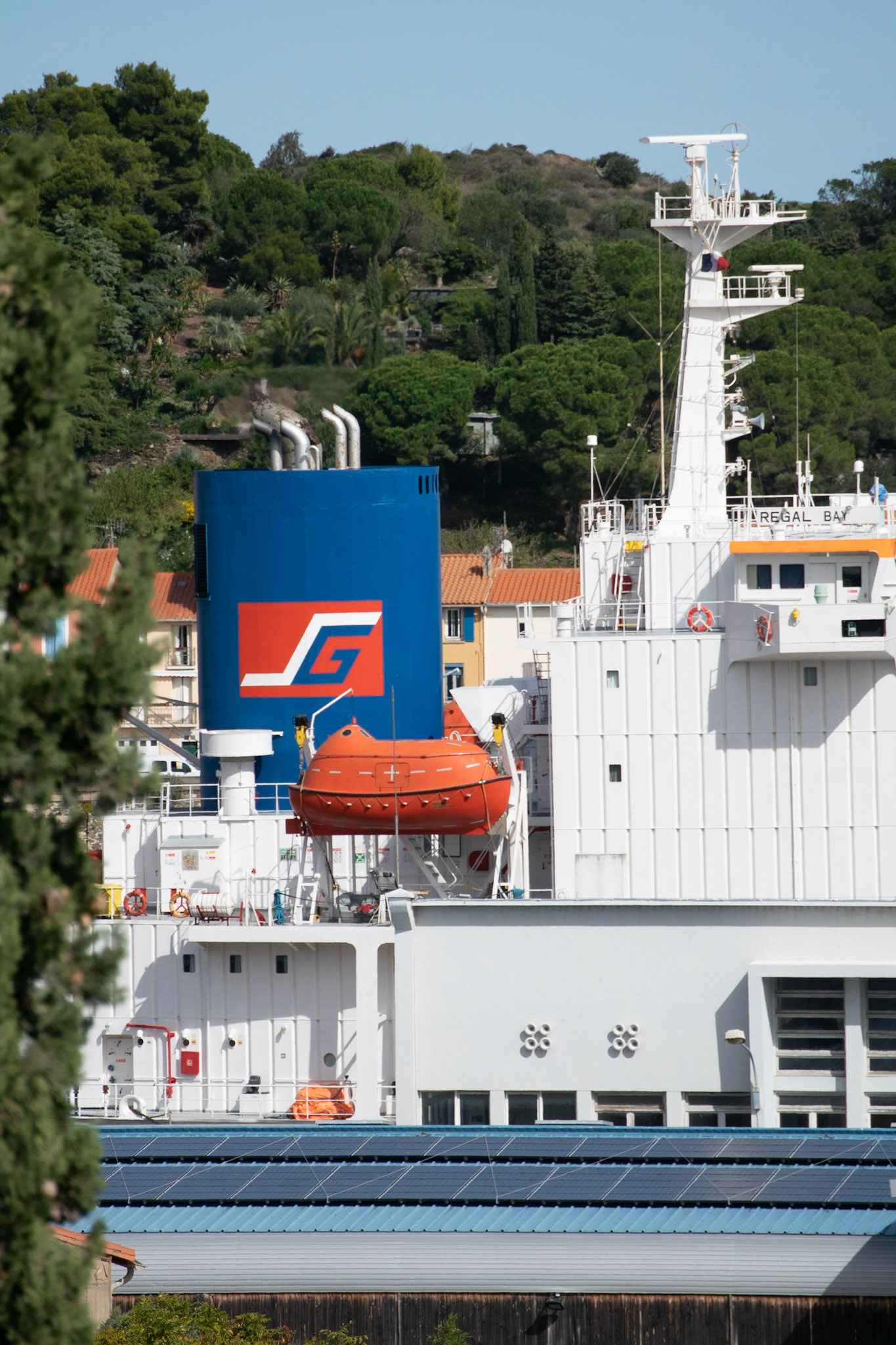
The freighters don't stop their engines.
The bay and harbor are geometrical because of the past use as a naval outpost and the host to both the seamen and the soldiers going to and from the French colonies. However, it's long been an organized port, though WWII and the colonial militarization resulted in a "new" city of mostly similar apartments. There's almost no "old" city visible. And, really, without the outsiders, it's a small town—a village of about 4000.
Nevertheless, deciding on this place and this rental was a crapshoot. The bets were hedged a little, but even a lot of research is not as good as being somewhere for an hour, a day, a week, or our three. We had to move out of a place in the Dordogne Valley in 2012 that had looked good online.
We had vetted this place and the owner and he'd done the same with us. That was a good sign. It was better than we were prepared to find and rent. We weren't expecting, for instance, such a functional, complete kitchen. We liked that a lot, and we were in easy walking distance of the grocery store, the green grocer, the charcuterie, and that great bakery. We stocked up. We decided that we'd eat lots of seafood, but prepared by others. I think that was also a good decision. We'll cook better back home for it.
